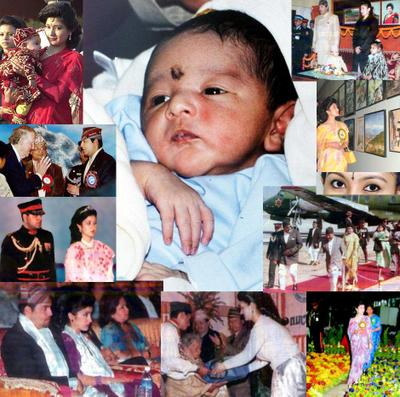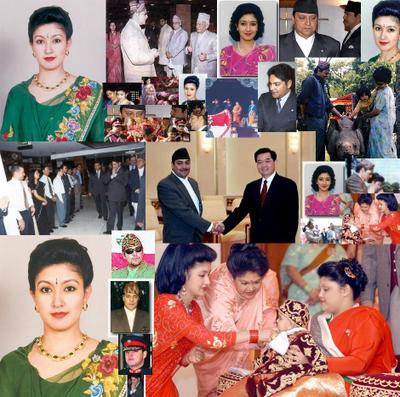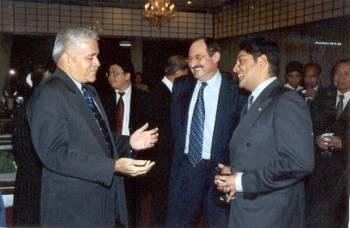Nepalese are not begging any more. There is no question of DHUNGRO LUKAUNE.
Do you beg to the DAKA who just looted your house?
OR you want to punish him whenever & however you find.
I think, some of you still think that DAKA will return your looted money back to you, when you beg...If you think so, go ahead & beg to this 'so called mantriparishad ko Adhkshya' I am not for that.
Nepalese are already rising to crush him.. in a near future, you will find nobdy mentioning any name of that criminal and his institution. (that institution will no more be of Nepali's institution)

First of all, the mohi-magne-dhungro-lukaune metaphor has nothing to do with begging. Maybe you don't know a whole lot about Nepali villages. But mohi-magne is an act of a neighbor. People ask each other for mohi. It is not an act of begging, and not even an act of seeking aid, or an act of destitution. It is an act of social bonding.
So no, noone is proposing any form of begging from anyone.
Second, I vehemently disagree with 2/1. I have, more vocally than most, more diligently than most. On the other hand, I also try to understand.
It was not the king who dissolved the House in 2002. It was Deuba. Girija cornered Deuba withing the party, and Deuba looked for a safety valve. So half the people should blame Deuba, the other half should blame Girija. Take your pick.
Girija's response to the Maoist insurgency was always military, never political. Go back to 1996, to 2000.
And I think it has been cruel for anyone to suggest this king might have had anything to do with the palace massacre. Even kings deserve family lives, private lives.
As for Article 127. This king did not write it. As for using it, Nepal is in a sorry shape. If a full fledged civil war affecting 90% of the territory is not an emergency, I don't know what is. Nepal is near the top of the global agenda. Nepal is the most violent, almost failed state. Maybe Article 127 was meant for situations like this.
People like Girija Koirala and Madhav Nepal had the option to go for a Constituent Assembly and seek a political solution to the insurgency back in 2000. But they did not even entertain the idea.
2,000 lives are not enough, it has to be 12,000 before these democrats will finally come around to the idea of a Constituent Assembly. A dissolved, non-existent parliament is not enough, there has to be a 2/1 before these democrats will come around to really truly seeking a political solution to the insurgency.
And look at the utter lack of internal democracy inside the Nepali Congress. Should we blame the king for that?
Why am I saying all these things?
I don't want to falsely blame the king for things he can not rightly be blamed for so I can more effectively focus on things that he is responsible for.
- He has overstretched Article 127 to the point it has become a constitution in its own right. That is flat wrong.
- Since 2/1 he has lead an illegitimate government filled with people with dark pasts. That is objectionable.
- He has been the chief executive for the past seven months. The insurgency has not grown any weaker. He has made no efforts whatsoever to seek a political solution to it, which is widely considered the only viable way. In short, he has failed.
- The palace and the army have looted the state treasury. That is highly objectionable.
Yitzhak Rabin said: "You don't make peace with friends. You make peace with enemies." I don't mind your painting the king as a bad guy. But my point is that is precisely why we need to take the initiative for dialogue. I am seeking dialogue, as in political dialogue. I am not saying let's go hang out, chill out with the king, and forget the protests.
I want the protest rally to be the largest possible. But I don't want to close doors on the dialogue option.
Some of the things I might say to the king if I had a chance. Of course it would be in Nepali, although I am a little leery of all the grammar that goes with addressing a king: I might not get it right always. All that garibakseko, dibakseko stuff.
- Your Majesty, President Clinton has said in his autobiography about a long talk on global politics he had with Queen Elizabeth that if it were not for the circumstances of her birth, she might have had a rather remarkable diplomatic career. I think that might be extra true of you. I think you are an able person. But it is not about your personal qualities. It is not about you being more deft at statecraft than Girija Koirala or Madhav Kumar Nepal or Sher Bahadur Deuba. It is about democratic principles. You may not take and legitimately keep the executive hot seat.
- You have already so outstretched Article 127. Why not use it to reinstate the House so as to bring back the derailed democratic process?
- I think there is no military solution to the insurgency. But there is a ready political solution. Do you agree or disagree?
- If an interim government were to guarantee a constitutional monarchy, and the guarantee were guarded by the Supreme Court, would you then accede to the country going through a Constituent Assembly process? Because a Constituent Assembly is the only elections that can be held. No other elections are possible. And a Constituent Assembly is a good thing, it is a great thing.
Generation Next
Mohi Magne, Dhungro Lukaune
To Meet Or Not To Meet
Opposition To The Idea Of Meeting With The King
Letter To Sharad Chandra Shaha
Mainstreaming The Monarchy




